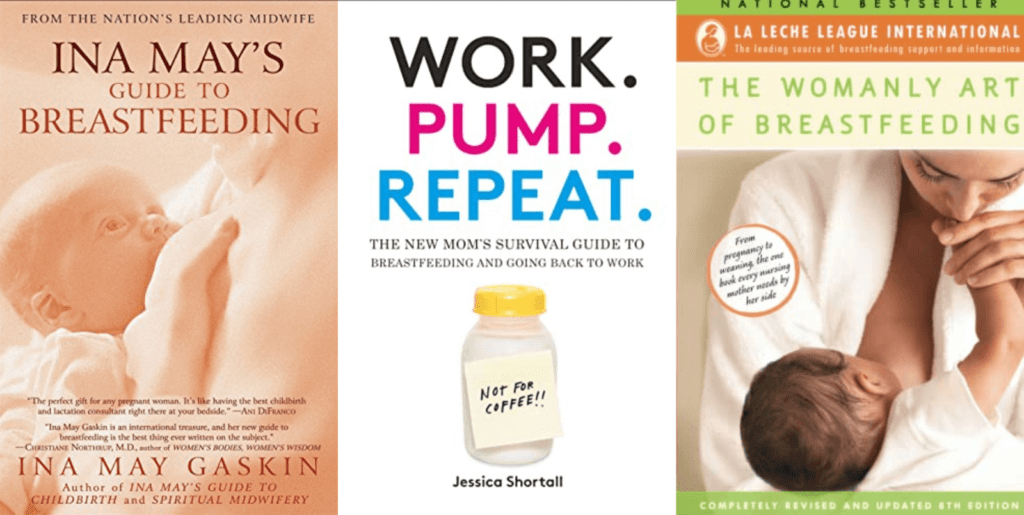In this post, you’re going to learn how to increase milk supply during period.
Importance of Maintaining Milk Supply
1. Adequate nutrition for the baby: Breast milk contains all the necessary nutrients and antibodies that your baby needs in the first few months of life. A steady milk supply ensures that your baby is well-fed and growing properly. (source)
2. Boost s baby’s immune system: Breast milk provides the necessary nutrition, antibodies, and enzymes that help the baby develop a strong immune system, fight off infections and reduce the risk of illnesses like asthma, allergies, and obesity. (source)
3. Improves baby’s cognitive development: Breast milk has been shown to enhance brain development and improve cognitive outcomes in children. (source)
Breastfeeding also promotes bonding between the mother and her baby, and helps to regulate the baby’s sleep and hunger patterns. (source)
Additionally, breastfeeding has a range of benefits for mothers as well, including a decreased risk of breast and ovarian cancer (source), and improved postpartum recovery. (source)
Related: 10 Tips For Successful Breastfeeding
Why Milk Supply May Decrease During Menstruation
During menstruation, hormone levels in the body change, which can lead to a decrease in milk supply for some women.
The hormone progesterone, which helps prepare the breasts for milk production, decreases during menstruation.
At the same time, the hormone prolactin, which stimulates milk production, may also decrease.
These hormonal changes can result in less milk being produced by the breasts.
Additionally, some women may experience dehydration during their menstrual cycle, which can also impact milk supply. (source)
It’s important for breastfeeding mothers to stay well-hydrated throughout the day to maintain a good milk supply.
It’s important to note that not all women experience a decrease in milk supply during menstruation, and some may not notice any changes at all.
If you are concerned about your milk supply, it’s always a good idea to speak with a lactation consultant or healthcare provider for personalized advice and support.
Related: How To Combine Breastfeeding And Pumping?
How To Increase Milk Supply During Period?
#1. Stay Hydrated
Based on research and medical advice, it is recommended for breastfeeding mothers to stay well-hydrated in order to increase milk supply at all times.
This is especially important during menstruation as hormonal changes can affect milk production.
In general, it’s recommended to drink 16 cups (128 ounces) of water per day when breastfeeding, but you may need more depending on your needs and activity level. (source)
Fluids can also include milk, juice, soup, and other non-alcoholic beverages.
It’s best to avoid caffeine, alcohol and soft drinks as these can dehydrate you and pass through to your breast milk.
You may find it helpful to keep a water bottle nearby or set reminders to drink regularly. Also, be sure to listen to your body and drink whenever you feel thirsty.
The following are some phone apps to help remind you to drink water:
Related: Top 8 Breast Pumping Tips For New Moms
#2. Eat Foods That Can Boost Your Milk Supply
Some foods that can help boost milk supply for breastfeeding mothers include:
1. Oats: Oats are a great source of iron which is essential for lactation. (source)
2. Fenugreek: Fenugreek is known to increase milk production in nursing mothers. It can be consumed as a tea or supplement. (source)
3. Fennel: Fennel has been used as a natural remedy for centuries to increase breast milk production. (source)
4. Brewer’s yeast: Brewer’s yeast is a rich source of B vitamins and minerals that are essential for milk production. (source)
5. Leafy greens: Dark, leafy greens like kale and spinach are loaded with calcium, iron, and vitamins that can help increase milk supply. (source)
6. Nuts and seeds: Nuts and seeds are high in protein, healthy fats, and minerals like magnesium which can help promote lactation. (source)
It’s important to remember that every woman’s body is different.
Experiment with different foods to find what works best for you and your baby.
Related: Best 10 Breastfeeding Books
#3. Avoid Foods That May Decrease Milk Supply
For nursing mothers, it is recommended to avoid certain foods that may impact milk supply, such as:
1. Caffeine: Consuming too much caffeine (10 or more cups of coffee (~1 g of caffeine) per day) can cause dehydration and decrease milk supply. (source)
2. Alcohol: Drinking alcohol can also reduce milk production and interfere with infant development.
3. Sage, parsley, peppermint, and menthol: These herbs are known to decrease milk supply. However, scientific research and anecdotal evidence are inconclusive. (source)
4. Fish with high mercury content: Large fish like shark, sword fish, king mackerel and tile fish contain high levels of mercury, which can harm the baby’s nervous system. (source)
Related: Breastfeeding Resources (Information, Apps, Books, Podcasts)
#4. Rest and Relax More
There is evidence to suggest that stress can negatively impact milk supply.
This is why taking measures to reduce stress and increase relaxation during your period may help to maintain or improve milk supply.
Strategies such as getting enough sleep, practicing relaxation techniques like deep breathing or meditation, staying hydrated, and engaging in gentle exercise can all help to reduce stress and promote relaxation.
Strategies for getting more sleep as a breastfeeding mother:
As a breastfeeding mother, getting enough sleep can be difficult, especially during the first few months when your baby’s feeding schedule is more frequent.
Here are some strategies that can help you get more sleep:
1. Nap when your baby naps: This is a great way to catch up on some rest during the day when your baby is sleeping. Even a 20-30 minute nap can make a big difference.
2. Share nighttime duties: Consider splitting nighttime responsibilities with your partner or someone else who can help you.
3. Learn side-lying nursing: This is a position where you can comfortably nurse your baby while lying down, allowing you to doze off without worrying about your baby’s safety.
4. Keep your baby close: Having your baby sleep in a bassinet or co-sleeper can be helpful as it will allow you to easily nurse them during the night without getting up.
5. Take care of yourself: Prioritize self-care by eating well, staying hydrated, and taking breaks when needed. The better you feel mentally and physically, the easier it will be to handle sleep deprivation.
Remember that every mother-baby duo is unique, what works for one may not work for another.
Experiment with the above strategies and see what works best for you and your baby.
Related: Best 10 Postpartum Books
#5. Breastfeed Frequently
Breastfeeding frequently can help increase milk supply during your menstrual cycle.
Hormonal changes during your period can affect milk production, so it’s important to continue breastfeeding as often as your baby needs during this time.
To help increase your breast milk supply, consider also pumping between feedings to stimulate milk production.
Related: Best 70 Pregnancy Hacks (+Products Recommendation)
#6. Use breast compression
While nursing, use gentle pressure on the breast to increase milk flow and encourage milk let down.
Here’s how to do it:
1. Find a comfortable position. You can sit in a chair or use a nursing pillow to support your baby.
2. Once your baby is latched on, place your hand on the breast that your baby is nursing from. Use your thumb and fingers to gently compress the breast.
3. You can also use your fingers to massage the breast, starting from the outer area and working your way towards the nipple.
4. Be careful not to apply too much pressure, as this can be uncomfortable for both you and your baby.
5. Repeat these steps on the other breast if you switch sides during the feeding session.
Remember, breast compression may not be necessary for every nursing session.
Related: Best 7 Pregnancy Self Care Products
When Medical Interventions May Be Necessary
It is recommended to seek medical intervention for increasing breast milk supply if you have tried other methods and are still experiencing trouble with lactation.
Some signs that may indicate a need for medical intervention include:
– You produce little or no breast milk
– Your baby is not gaining weight or is losing weight despite frequent nursing
– Your baby seems fussy and unsatisfied after nursing
– You have multiple blocked milk ducts or recurrent mastitis
In these cases, it is important to consult with a lactation consultant or healthcare provider who can assess the situation and provide appropriate recommendations.
There are several medical interventions that may be necessary to increase milk supply during a period.
Here are a few:
1. Hormonal therapy: Hormonal therapy may be used to regulate levels of prolactin, a hormone that stimulates milk production in the breasts. Some examples of hormonal therapy include birth control pills, prolactin-inhibiting medications, and medications that stimulate prolactin secretion.
2. Galactagogues: Galactagogues are substances that promote lactation. These can be in the form of herbal supplements such as fenugreek, shatavari, or blessed thistle, or pharmaceuticals like domperidone.
3. Breast feeding support: Working with a trained lactation consultant or attending breastfeeding support groups may help mothers to more effectively stimulate milk production.
4. Pumping: Regular pumping can help to increase milk supply. Women can begin pumping after feeds or between feeds as needed.
It’s important to note that the most effective way to increase milk supply is through frequent and consistent breastfeeding or pumping.
A healthcare provider can help determine which intervention may be necessary based on an individual’s specific needs and circumstances.
Related: Best Pregnancy Resources (Information, Apps, Books, Podcasts)
Conclusion
Every woman’s body reacts differently, so it’s best to listen to your body and consult a healthcare provider if you notice any issues with milk production.
FAQ
Does Sunflower Lecithin Increase Milk Supply?
Sunflower lecithin is a commonly used supplement to help breastfeeding mothers manage issues such as clogged milk ducts and excess lipase in breast milk.
Some women have reported an increase in milk supply after taking sunflower lecithin, but scientific studies are inconclusive on this claim.
However, sunflower lecithin has been shown to help improve the flow of breast milk, which can also help increase milk supply by ensuring that breasts are emptied adequately during feedings.
Additionally, sunflower lecithin may help prevent the formation of clogs, which can lead to milk production problems if not addressed quickly.
It’s important to note that while sunflower lecithin is generally considered safe for breastfeeding mothers and their infants, it’s always best to consult with a healthcare provider before taking any new supplements.
Does Coconut Water Increase Milk Supply?
Coconut water is a natural and healthy drink, but there is limited scientific research to support its effectiveness in increasing milk supply.
While some breastfeeding mothers have reported positive results after drinking coconut water, it’s important to note that every woman’s body responds differently to different foods and drinks.
Does Milk Supply Decrease When Sick?
Yes, milk supply can decrease when a lactating person is sick. (source)
Illnesses such as flu or other infections can cause dehydration, decreased appetite, and general malaise, which may lead to a reduction in milk production.
Additionally, some medications used to treat illness can also impact milk supply.
It is important for mothers to stay hydrated and well-nourished while sick, and to seek medical advice if their milk supply decreases significantly or if they have any concerns.




